Lori Beck is concerned about her hops vines when we meet in the beer garden shared by her two restaurants, Holy Grale and Gralehaus. The vines hang from tall trellises strung between the two turn-of-the-century buildings and sway in the autumnal breeze. Admittedly, there is a tinge of yellow in a few of the leaves. But then again, Kentucky is further south than one usually finds hops—just one of the many unexpected elements in two of Louisville’s most beloved restaurants.
But it’s clear there’s more on Beck’s mind than the hops. As we talk, she fields a call from an espresso machine technician and contractor. The roof to Gralehaus was damaged in a recent storm—the remnants of Hurricane Ida—and needs repairs. Both restaurants were closed for more than eight months, and reopening has not gone as smoothly as hoped. Yet, Beck remains resolute in her optimism and determination.
That story begins when Beck’s partner, Tyler Trotter, began touring Europe as a guitarist and audio technician. In Belgium, he encountered a centuries-old brewing tradition unlike anything he had tried in the United States.
Inspired by their travels around Europe, Trotter and Beck opened the now-shuttered Louisville Beer Store. The business was a passion project but struggled financially over the years. The pair thought a bar and restaurant could help support the beer store. “Also, we had collected so many kegs of rare beer,” laughs Beck.
The couple found the perfect location: a deconsecrated Unitarian church on Bardstown Road, the main thoroughfare for Louisville’s quirky, independent Highlands neighborhood. In recent years, major brands such as Chipotle have snatched up some of the prime real estate, but the lion’s share of the neighborhood, if not residential, is still independently-owned consignment shops, record stores and tattoo parlors.
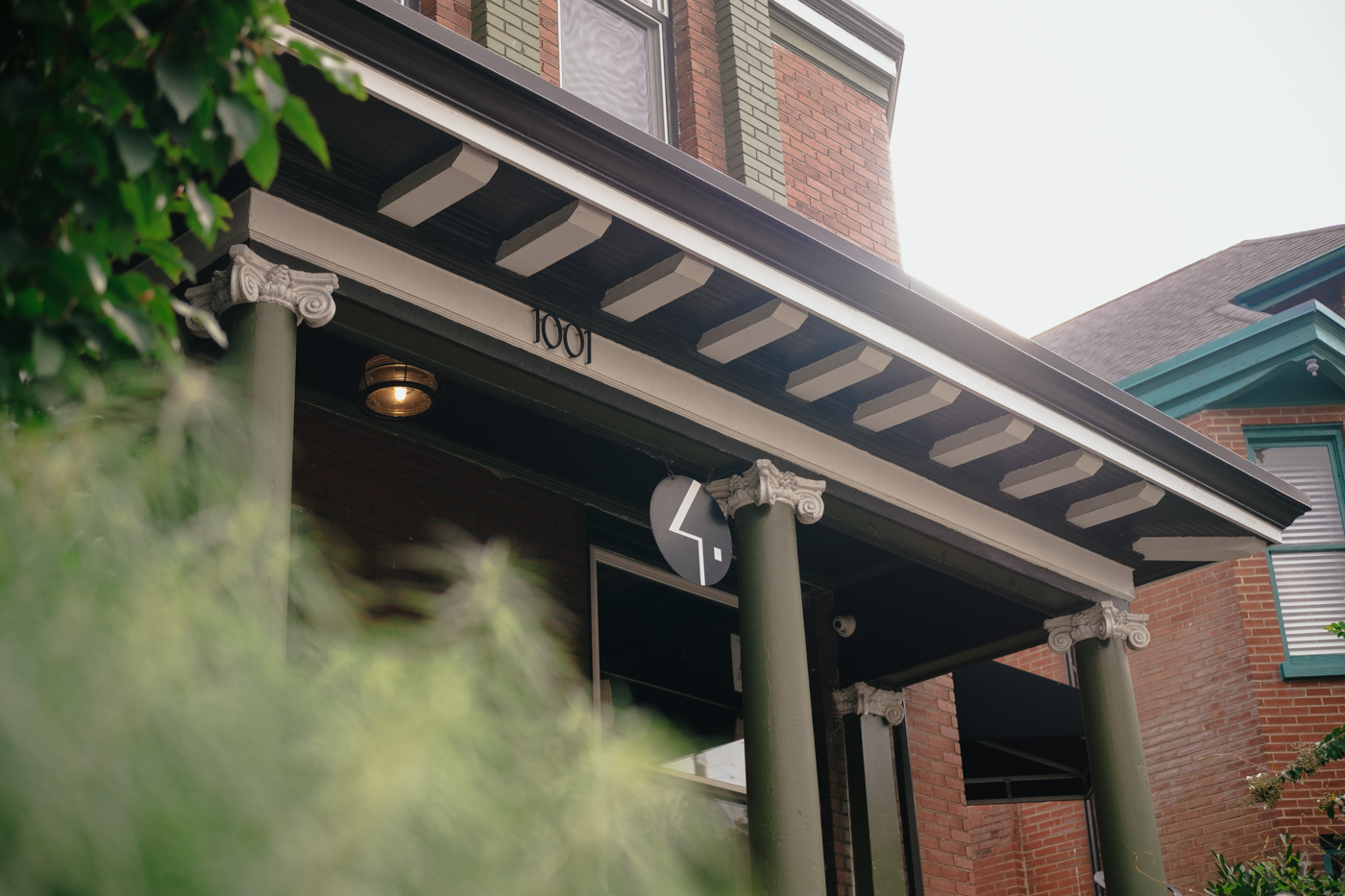
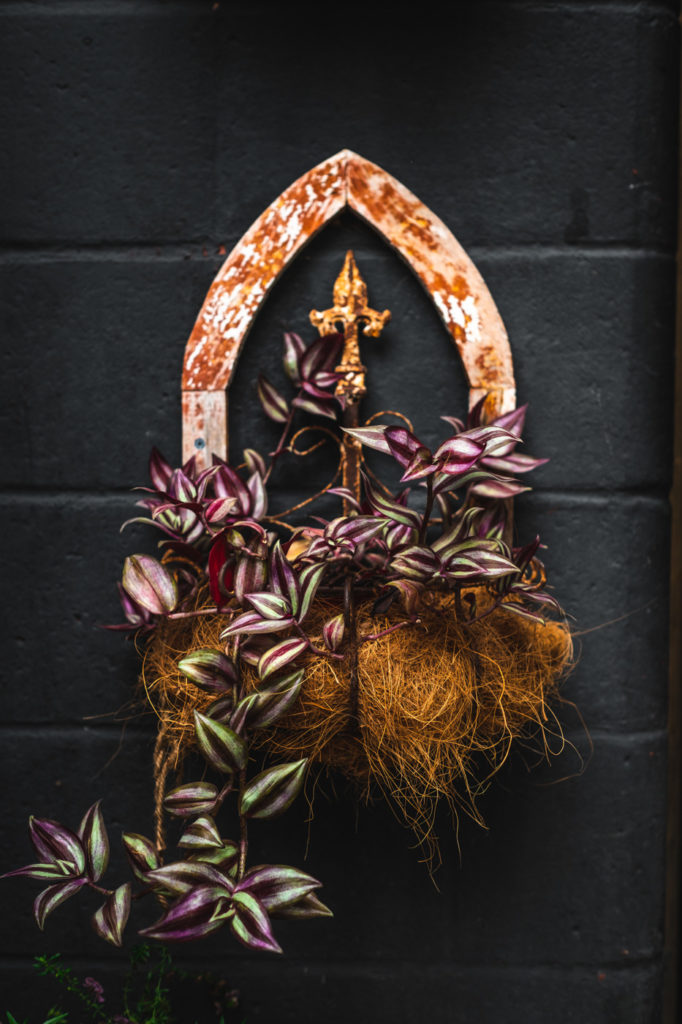
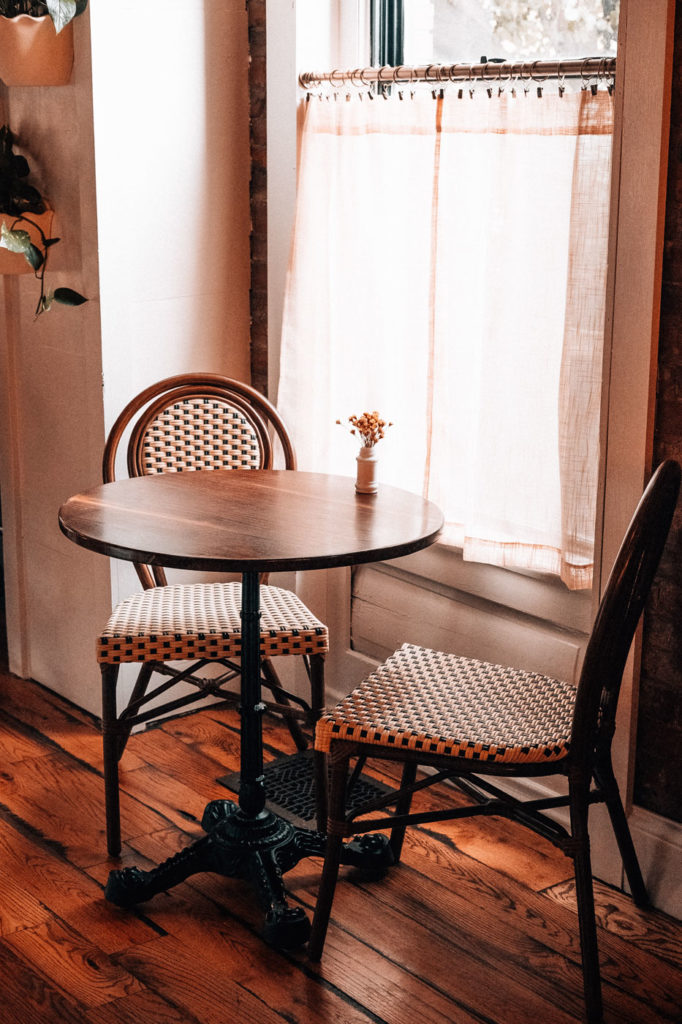
The Holy Grale quickly became a Louisville institution, not only for its hard-to-find beers and cheeky demeanor (the restrooms are decorated floor-to-ceiling with varied renditions of the Last Supper), but its unapologetically hedonistic food program—triple-fried frites with wasabi mayo, buttery escargot, and a decadent cheeseburger topped with thick cuts of Tennessee’s famed Benton’s bacon.
Gralehaus, Beck and Trotter’s all-day café meets bed-and-breakfast, soon followed.
“This building had been a single-family residency for four generations. It came on the market and our landlord bought it and offered to lease us the space,” says Beck. “We had been traveling around Belgium pretty often at this point. We noticed many breweries had guest rooms above them, which we thought was pretty cool.”
Like countless other privately-owned restaurants, business came to a screeching halt with the pandemic. The Grales tried switching to a take-away focused model, but by the time January 2021 rolled around, it all got to be too much. With cases spiking in Kentucky and Beck reeling from a personal loss, Beck made the difficult decision to shut everything down.
The Grales were not the only Louisville restaurants to close during the pandemic. Another Bardstown Road restaurant, Ramsi’s Café on the World—a much-loved Egyptian restaurant—filed for bankruptcy. On nearby East Market Street, James Beard-nominated executive chef and owner Annie Pettry announced her departure from Decca after closing the restaurant (it’s since reopened under different ownership). The much-celebrated Butchertown Grocery remains closed and Executive Chef Bobby Benjamin later resigned in May of 2021. These are in addition to the more than 40 Louisville bars and restaurants that closed permanently in 2020 according to the research by Louisville Business First.

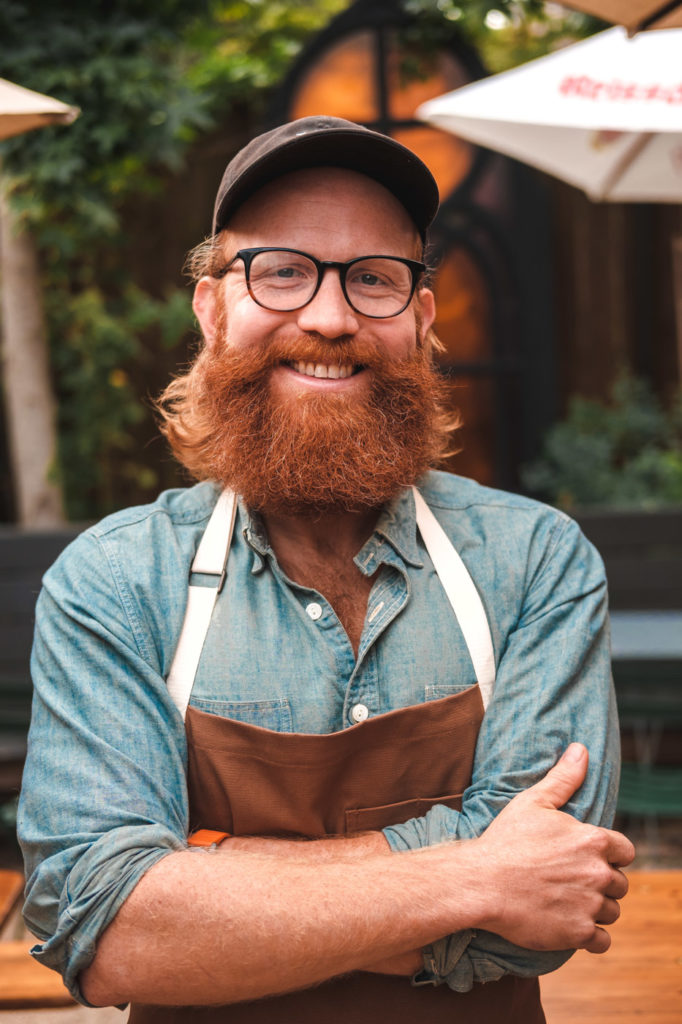
Many Louisville restaurateurs, including Beck, point to at least one factor for this collapse: a lack of government assistance.
“We’re in a very tight financial situation right now. Maybe the scariest and most stressful since we opened in 2010,” says Beck.
Beck and Trotter bootstrapped The Grales with no debt or outside investors, and their application for a grant from the Restaurant Revitalization Fund is still pending.
“That grant would really help,” she says. “The problem is only a portion of restaurants received it, and the majority didn’t. It’s created an unlevel playing field.”
The fund was adopted by congress in April of 2021, but quickly ran out of money. Because funding was distributed on a first-come, first-served basis, the majority of applicants like Beck have still received nothing.
Beck notes that neighboring businesses that received a grant have since been able to offer higher wages to employees in the midst of a nationwide labor shortage. One neighborhood recipient includes a fast-food franchise with a drive-thru.
“This whole grant process could have been handled differently,” says Beck. “We knew it was underfunded going into it. So why wouldn’t they have taken all of the applications, seen the amount, and distributed based on the amount of funds?”
Ironically, it was Kentucky Senator Rand Paul whose objection to a unanimous consent motion blocked the Restaurant Revitalization Fund Replenishment Act of 2021 from going through before the August recess. Congress’s failure to replenish the fund has left Beck and hundreds of thousands of other restaurant owners wondering if and when assistance is coming. Most are losing—or have lost—hope.
“It’s disheartening, but it’s not over yet,” says Beck. “We’re going to remain optimistic and do what we can.”
In the meantime, she applied to receive a loan from the Small Business Administration. After months of waiting, Beck received word the loan was approved in September.
“[We applied] just so we have some room to breathe,” says Beck. “I’m scared about taking on such a large loan. In 11 years, we’ve done everything with our own cash.”
With cash reserves dwindling with an increasing number of Americans getting vaccinated, Beck felt like it was possible and necessary to reopen Gralehaus in August. With a new chef, new menu, and remodeled interior, it feels more like a restart.
The result is a top-to-bottom remodel. A streamlined concept created more seating, while new wallpaper and furnishings make for a more elegant, continental atmosphere.
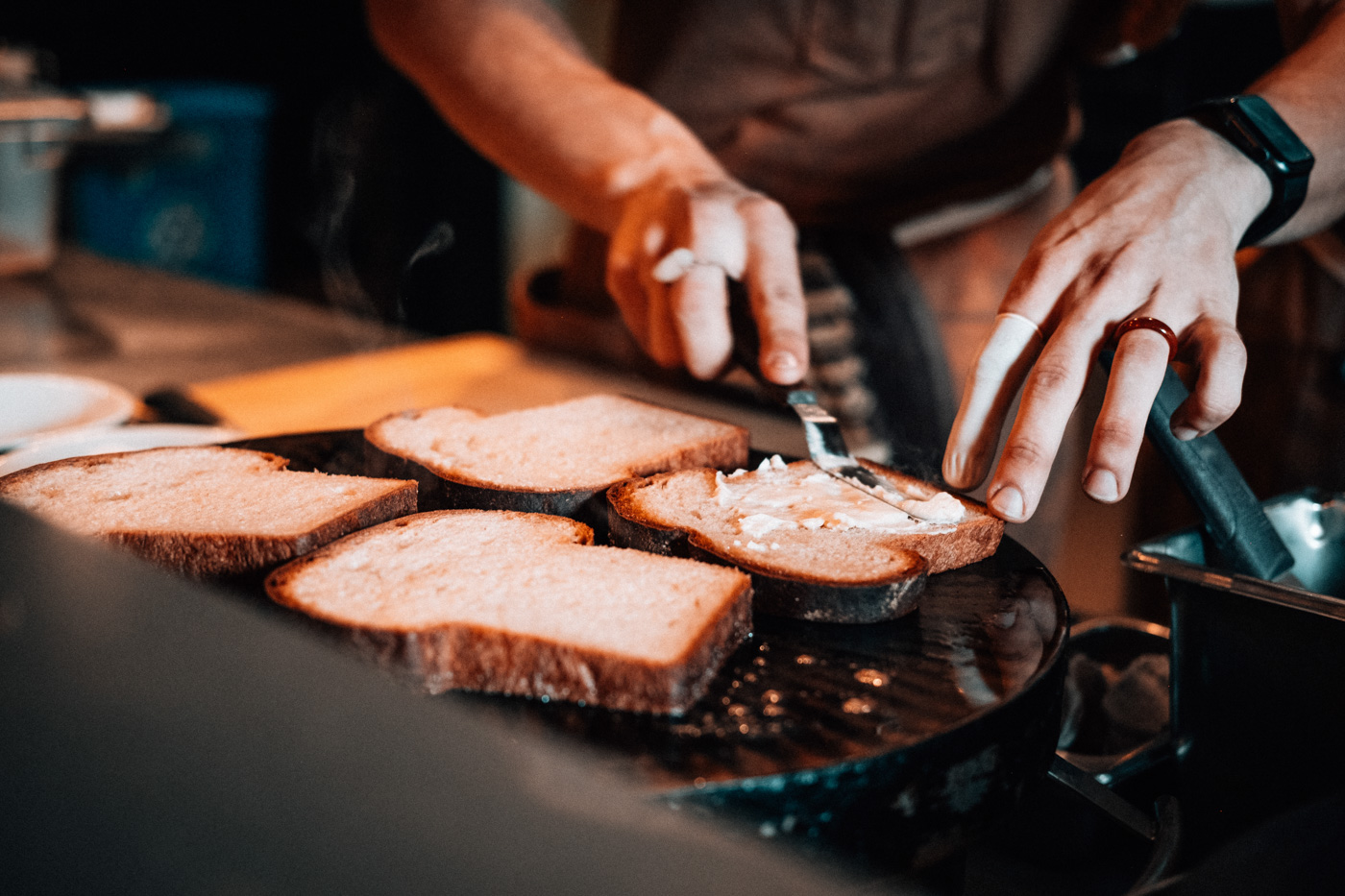
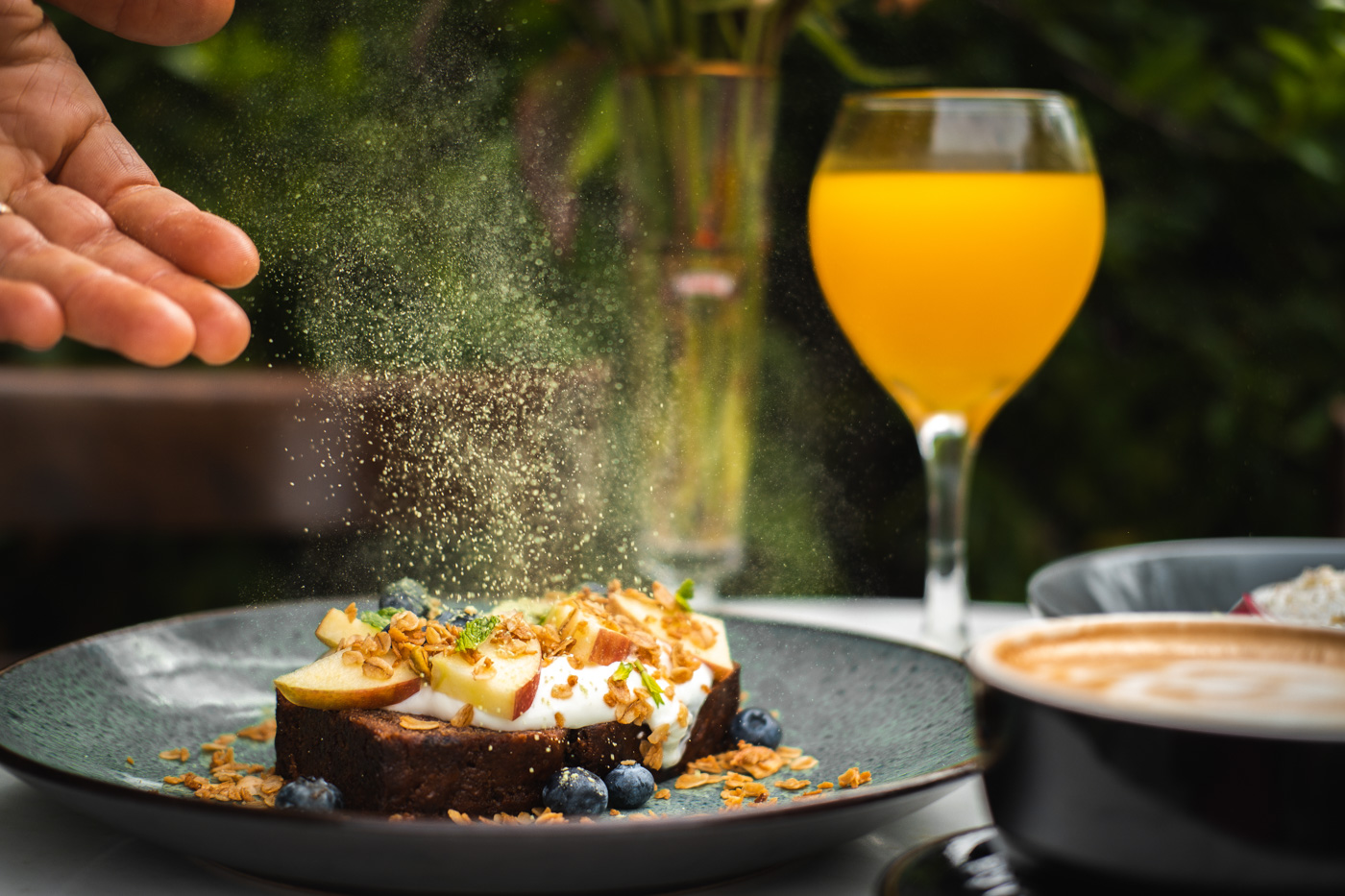
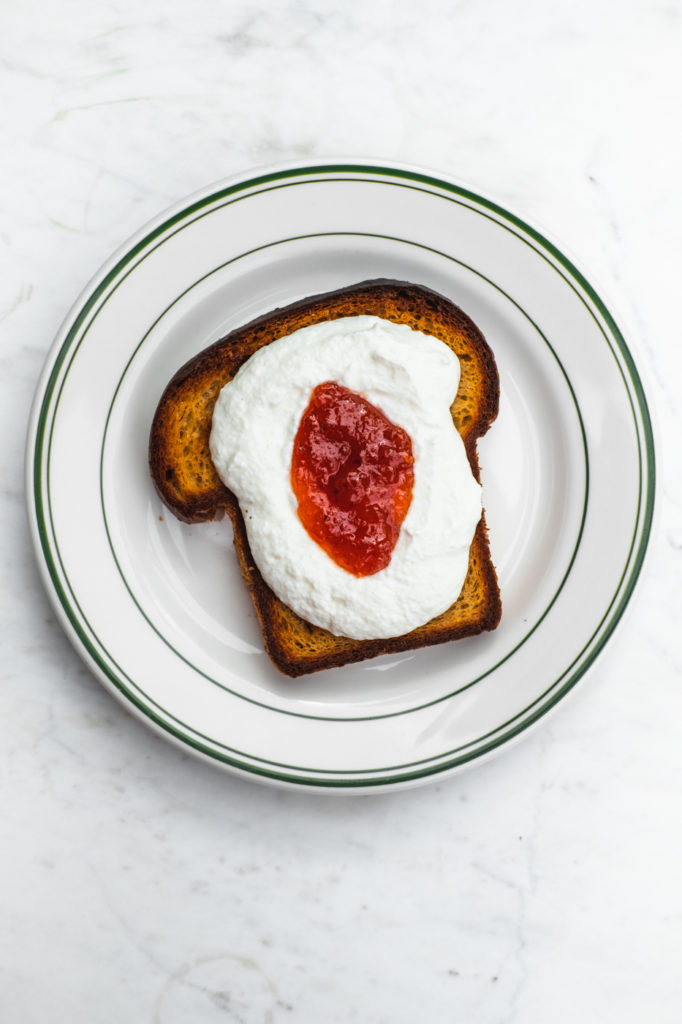
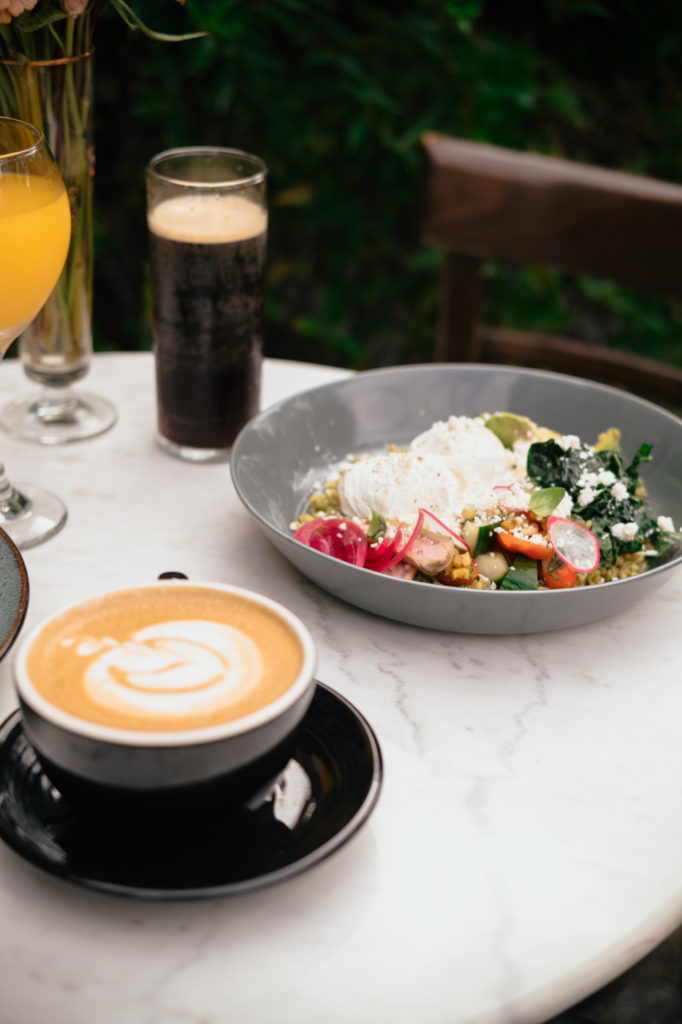
“I was really inspired by the Italian neighborhood bar,” says Beck. “When we first opened, we had a standing espresso bar—it turns out no one really likes to stand in Louisville.” Coffee is provided by Durham, North Carolina’s Counter Culture Coffee and prepared with a first-generation Modbar—an under-the-counter espresso machine that resembles beer taps.
Some pandemic-inspired adjustments are here to stay, such as QR code menus and online ordering, which has replaced counter service. The streamlined service model has created greater efficiency, allowing Gralehaus to staff leaner and pay employees more.
“We’re paying people more than we’ve ever paid,” says Beck. “We’ve tried to go above and beyond.”
Reopening The Grales not only provided an opportunity to adjust their service model, but to renew their commitment to sustainability and local agriculture. “I’m not interested in buying beer from factories that are pumping out hundreds of thousands of barrels of beer. I have friends who have fourth, fifth-generation family-owned breweries I’d rather get behind,” says Beck. “I’d rather buy from our friends who are growing food than off some truck from a commodity purveyor. That’s what’s driving all of the decision-making right now.”
“If there are four ingredients on that burger, you have to have great beef,” says Jonathan Searle. Searle is the new executive chef at The Grales, having recently joined the group after serving as the executive chef of 21c Museum Hotels in Louisville and Lexington.
The beef is sourced from nearby 3D Valley Farm, while most of the vegetables come from local farmers Amara McCarthy and Adam Barr of Barr Farms.
“These are people we love, and they love what they do. You taste it, you feel it, and it excites you,” says Beck. “It makes you want to do something beautiful with it.”
Although the burger remains The Grales’ top seller, Searle’s menu has taken the menu in a more vegetable-centric direction. “I’m not a smoke and mirrors chef,” says Searle. “I want to cook holistic things. Nutritious things. Simple things that have less going on and are more about the technique.”
For The Grales, that means doing as much in-house as possible—down to baking their own bread. “Let’s find these attention-to-detail ways of making familiar things eye-rollingly good,” says Searle.
For Beck and Searle, an emblematic dish of this new direction is the burrata toast—dressed with a spoonful of house-made red pepper jelly. “[Our staff] were making it as a snack, and it just appeared on the menu,” says Beck. “It’s what I want to eat every day.”
Flourishes on Searle’s menu betray his fine dining background. The banana date bread comes immaculately plated with slices of fresh fruit, house-made coconut granola, and a dusting of matcha powdered sugar. The “ugly frittata” is anything but, topped with a generous scoop of crème fraîche and a healthy portion of vinaigrette-drenched lettuce.
For fans of the original Gralehaus menu, the shift toward lighter, healthier food has elicited mixed reactions. One previous favorite that is conspicuously absent from the new menu: grits. For Searle, the removal was a conscious decision to move beyond Southern cuisine.
“I am using and want to take advantage of the Ohio River Valley and everything that is here. There will always be Southern ingredients, Southern sauces, Southern inspirations in those dishes,” says Searle. “I just want to continue to explore outside of the area.”
Searle admits the step away from fine dining to do more casual fare for a beer bar raised some eyebrows in the culinary community. “A lot of people who are ego-based would look at this like a backward move,” says Searle. “I just don’t care about that stuff anymore. My ego doesn’t need more attention. I want to cook good food, have a happy team, and spend the rest of the time I can out in the woods.”
Searle’s lifestyle change is reflective of many professionals who view their careers differently after the pandemic.
“I still love being in kitchens, but that’s by no means the only thing that validates me or brings me happiness. My value system changed. I backpack, I hike, I trail run. I’m not career-oriented anymore,” continues Searle. “I found people in this organization that share my value system.”
“We opened this company in our 20s. We partied, and the company culture was kind of built on that,” says Beck. “İt’s fun and it feels like family. But there’s a little bit of dysfunction that comes with it. I would like to see a shift. I’d rather it be that we’re bonding through healthy activities.”
This new emphasis on wellness is also reflected in the beverage program. While The Grales are still primarily known for their Belgian sours and carefully curated wine program, the new menu has a special emphasis on non-alcoholic beverages, including Wilfred’s Sparkler—a non-alcoholic spritz made with Wilfred’s Bittersweet Aperitif.
After a decade in business, Beck understands the commitment to work with small producers is neither easier nor more profitable. “If we have to lower or compromise our values to make ends meet, none of us want to do this anymore,” she says. “If this doesn’t work, we’re out.”
___
Even with the fate of her existing restaurants uncertain, Beck has an eye on expansion. After an adjacent property opened up, Beck leapt at the chance to lease it.
“We had plans to put a different restaurant in this building, but the pandemic made us rethink that,” says Beck. “We really missed having a store to buy retail from.”
Pending grant approval, Grale Provisions is slated to open in early 2022, with a narrower focus on wine and boutique grocery items.
“There will be a retail component with all of the things we love: coffee, beer, wine, cheese,” says Beck. The space will also host a small bar dedicated to natural wine.
“We’ve put everything we have into this,” she says. “And we’re just hoping it works out.”





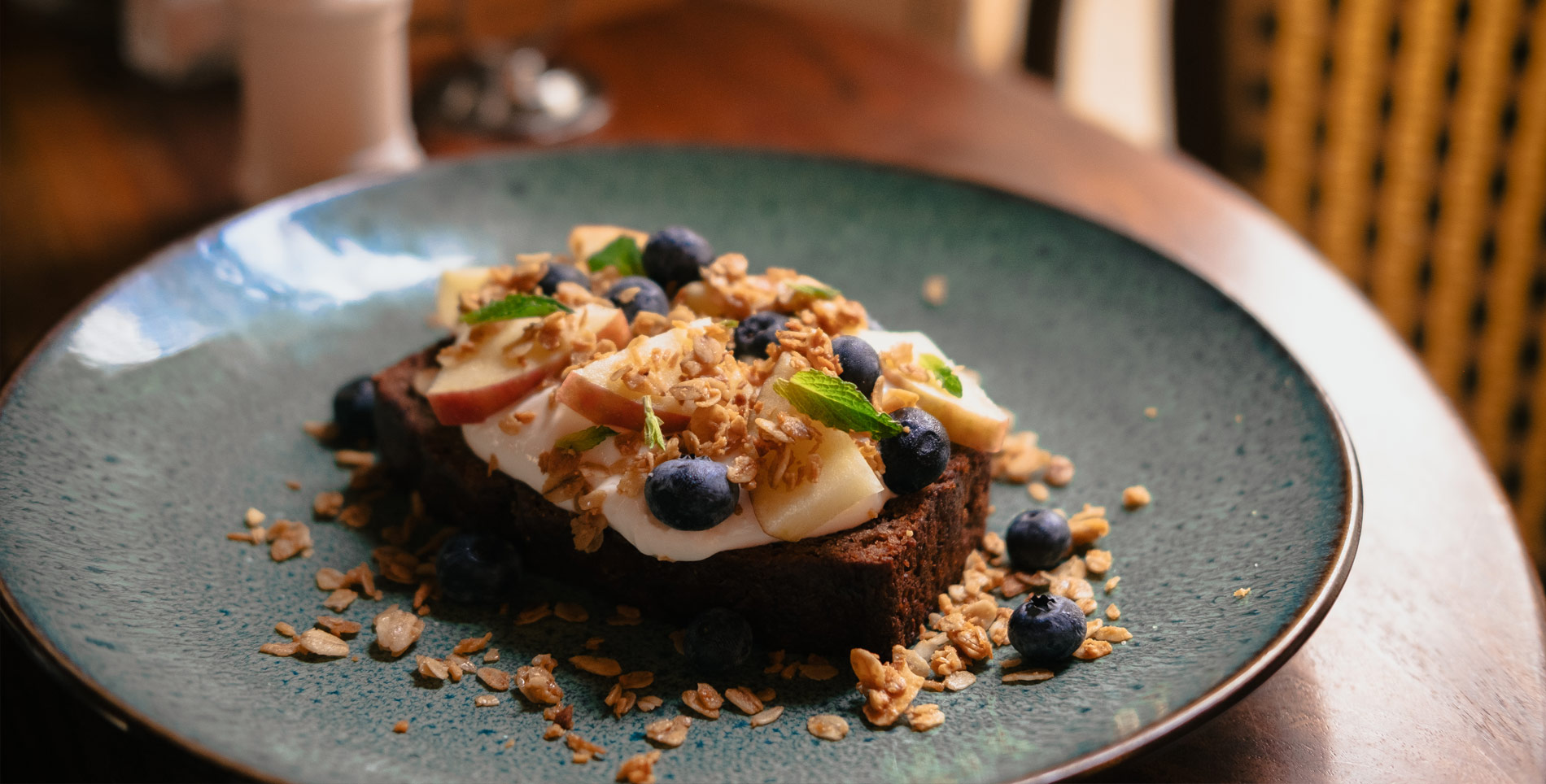

Our comments section is for members only.
Join today to gain exclusive access.